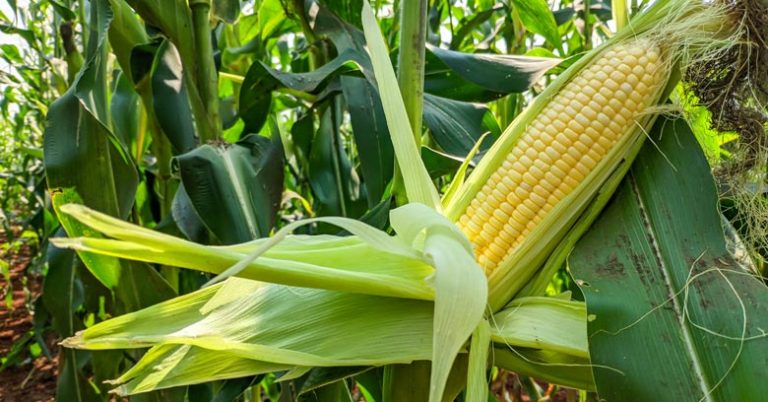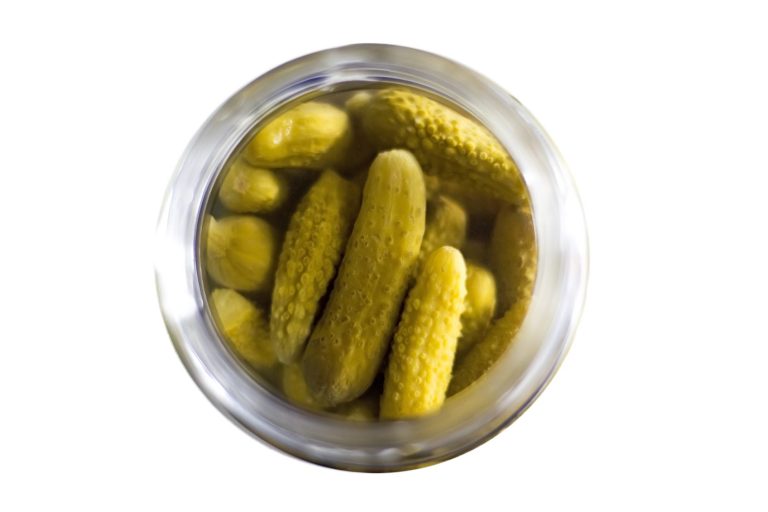Can You Compost Grapes – Best Composting Tips
Yes, you can compost grapes as they are organic and will decompose in your compost pile. Grapes are a great addition to compost as they provide essential nutrients and moisture, and help to break down other organic matter.
Composting grapes is an environmentally friendly way to dispose of any excess or spoiled grapes you may have. It is important to remember to remove any stickers or packaging before adding grapes to your compost pile. Additionally, you can use grape vines or stems as a source of carbon in your compost to help balance the nitrogen-rich fruit.
Composting grapes not only reduces waste but also helps to create nutrient-rich soil for your garden or plants.
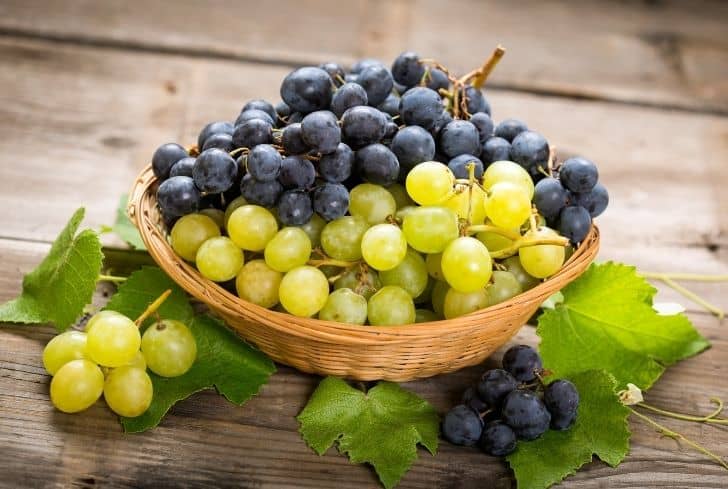
Science Behind Composting Grapes
Composting is a natural process that breaks down organic materials into a nutrient-rich substance called compost. It’s a great way to reduce waste and create a valuable soil amendment for your garden. But what about grapes? Can you compost them? Let’s dive into the science behind composting grapes and find out.
How Does Composting Work?
Composting works by creating the ideal conditions for microorganisms to break down organic matter. Here’s how it happens:
- Decomposition: When grapes are added to a compost pile, they undergo decomposition. Microorganisms such as bacteria and fungi start breaking down the grapes into simpler compounds.
- Carbon to nitrogen ratio: Composting requires a proper balance of carbon and nitrogen. Grapes, being a fruit, have a high nitrogen content. To maintain the ideal carbon-to-nitrogen ratio in your compost, it’s recommended to add a carbon-rich ingredient such as dried leaves or wood chips along with the grapes.
- Temperature and moisture: The microorganisms responsible for composting work best in a warm and moist environment. It’s important to regularly turn the compost pile to provide oxygen and maintain the moisture level. This helps in speeding up the decomposition process.
Benefits of Composting Grapes
Composting grapes can have several benefits, both for your garden and the environment. Here are a few key advantages:
- Reduced waste: By composting grapes, you’re diverting them from the landfill and reducing the amount of waste that goes into the garbage. This contributes to a more sustainable waste management system.
- Nutrient-rich compost: The decomposition of grapes adds valuable nutrients to the compost, making it an excellent soil amendment. The resulting compost can enhance soil fertility, improve water retention, and promote healthy plant growth.
- Carbon sequestration: Composting grapes helps in sequestering carbon from the atmosphere. Organic materials, including grapes, contain carbon that gets stored in the compost instead of being released as greenhouse gases.
- Supports soil biodiversity: The microorganisms involved in the composting process contribute to the overall health and biodiversity of the soil. Composting grapes adds diversity to the microbial community, creating a rich ecosystem underground.
Composition of Grapes
Grapes are not only delicious and refreshing, but they also hold a unique place in the world of composting. If you’ve been wondering whether you can compost grapes, you’re in the right place. In this section, we will delve into the composition of grapes, exploring their nutritional value and how they can be composted effectively.
What are Grapes Composed of?
Grapes consist of various components that contribute to their overall composition. Here’s a breakdown of what makes up these juicy fruits:
- Water: Grapes have high water content, making them hydrating and a fantastic addition to any compost pile.
- Carbohydrates: Grapes are rich in carbohydrates, which act as a source of energy for both humans and microorganisms in the composting process.
- Fiber: These fruits contain dietary fiber, which aids in digestion and adds bulk to your compost, promoting better aeration and moisture retention.
- Vitamins and minerals: Grapes pack an array of essential vitamins such as vitamin C and vitamin K. Additionally, they contain minerals like potassium and manganese, which can provide beneficial nutrients to your compost.
- Antioxidants: Grapes are known for their antioxidant content, particularly from compounds such as resveratrol. These antioxidants can help protect the plants in your garden when you utilize the compost.
Nutritional Value of Grapes
Not only are grapes delicious, but they also bring a host of nutritional benefits to the table. Let’s take a closer look at the nutritional value of grapes:
- Low calorie: Grapes are relatively low in calories, making them a guilt-free snack. This characteristic is particularly handy when you’re trying to maintain a balanced diet.
- Rich in vitamins: These tiny fruits are a great source of vitamins, including vitamin C and vitamin K. These vitamins can support your overall health and immune system.
- Minerals galore: Grapes contain several minerals, such as potassium and manganese, which play crucial roles in maintaining optimal bodily functions.
- Antioxidant powerhouse: The antioxidants present in grapes can help protect your cells from damage caused by harmful free radicals. Consuming and composting grapes can contribute to a healthier garden and environment.
Can You Compost Grapes
Grapes are a delicious and nutritious fruit that many of us enjoy eating. But what happens when those grapes pass their prime and become overripe or start to spoil? Can you compost grapes? In this section, we will explore the factors to consider when composting grapes.
Breaking Down Grapes In Composting
When it comes to composting grapes, understanding how they break down is essential. Here are the key points to consider.
- Grapes are high in water content, which helps speed up the decomposition process.
- The natural sugars in grapes can attract pests, so it’s important to bury them deep in your compost pile or mix them with other materials to deter unwanted visitors.
- Grapes, like other fruits, are considered green or nitrogen-rich materials in composting. Balancing them with brown or carbon-rich materials is crucial for a healthy compost pile.
- Grapes break down relatively quickly in composting due to their soft texture and high moisture content.
Grapes as A Compost Ingredient
Now that we know how grapes break down in composting, let’s explore their role as a compost ingredient. Consider the following points:
- Grapes add moisture to the compost pile, which can be beneficial, especially if you have mostly dry materials.
- The skins and peels of grapes are rich in nutrients, such as potassium and antioxidants, that can enrich your compost and improve soil health.
- Grapes can help create a balanced mix of green and brown materials in your compost pile.
- While composting grapes is generally beneficial, avoid adding large quantities of spoiled or moldy grapes as they can disrupt the balance of your compost.
Do’s and Don’ts of Composting Grapes
Grapes are a delicious fruit that can add a burst of flavor to many dishes and beverages. But what do you do with the grapes that have gone bad or are past their prime? Instead of throwing them in the trash, why not compost them?
Composting grapes can not only help reduce waste but also provide valuable nutrients to enrich your garden soil. However, there are some important dos and don’ts to keep in mind when composting grapes.
Do’s of Composting Grapes
Adding grapes to the compost pile
- Chop up the grapes into smaller pieces before adding them to the compost pile. This will help speed up the decomposition process.
- Ensure a balanced carbon-to-nitrogen ratio in your compost pile by adding equal parts of grape waste and dry materials, such as shredded leaves or newspaper.
- Mix the grape waste well with the other compost materials to ensure proper aeration and prevent clumping.
- Regularly turn the compost pile to promote decomposition and prevent odors.
Mixing grapes with other compost materials
- Combine grape waste with other kitchen scraps like vegetable and fruit peels, coffee grounds, and eggshells to create a balanced mix of organic waste.
- Incorporate some yard waste, such as grass clippings or plant trimmings, to provide additional nutrients and improve the structure of the compost.
Don’ts of Composting Grapes
Avoiding moldy or spoiled grapes
- Do not compost grapes that are moldy, slimy, or spoiled. These grapes can introduce harmful pathogens and create an unpleasant smell in your compost pile.
- Be cautious about composting grapes that have been treated with pesticides or other chemicals. These substances can disrupt the natural decomposition process and contaminate the compost.
Controlling the sugar content of grapes
- Avoid adding excessive amounts of grapes with high sugar content to your compost. While a small amount of sweetness is fine, too much sugar can attract pests and disrupt the balance of your compost pile.
- If you have an abundance of grapes, it’s a good idea to mix them with other low-sugar compost materials to maintain a healthy compost ecosystem.
Tips for Successful Grape Composting
Grapes are a popular and delicious fruit that many people enjoy. But what should you do with grape waste, such as grape peels, seeds, and stems? Can you compost grapes and turn them into nutrient-rich soil? The answer is yes! Composting grapes not only helps reduce waste but also provides an excellent source of organic matter for your garden. In this section, we will explore some tips for successful grape composting.
Achieving The Right Balance of Ingredients
When it comes to successful grape composting, achieving the right balance of ingredients is crucial. Here are some key points to keep in mind:
- Mix grape waste with other compostable materials: Adding a variety of ingredients, such as kitchen scraps, yard waste, and dried leaves, helps create a well-balanced compost pile. The mixture should consist of approximately equal amounts of green (nitrogen-rich) and brown (carbon-rich) materials.
- Chop or shred grape waste: Breaking down grape waste into smaller pieces helps speed up the decomposition process and prevents it from clumping together. Consider using a compost shredder or simply chop the waste before adding it to the compost pile.
- Avoid using large quantities of acidic fruits: While grapes are slightly acidic, they can be composted in moderate amounts without causing any significant issues. However, it is advisable to avoid adding large quantities of acidic fruits to your compost pile, as this can throw off the ph balance and slow down the decomposition process.
- Opt for a compost bin or compost pile: Whether you choose to use a compost bin or create a compost pile directly on the ground, ensure that there is enough space for air circulation. Aerobic bacteria thrive in oxygen-rich environments, promoting decomposition and preventing unpleasant odors.
Maintaining Optimal Moisture Levels
In addition to the right balance of ingredients, maintaining optimal moisture levels is essential for successful grape composting. Here are a few tips to help you keep your compost pile adequately moist:
- Regularly monitor moisture content: Check the moisture level of your compost pile by squeezing a handful of material. It should be moist enough that water can be squeezed out but not sopping wet.
- Water the compost pile when necessary: If your compost pile feels dry or crumbly, it may need some additional moisture. Use a watering can or hose to evenly sprinkle water over the pile, ensuring thorough saturation.
- Incorporate dry materials if the pile is too wet: If your compost pile becomes too wet and starts to smell unpleasant, add dry materials, such as dried leaves or straw, to absorb excess moisture. Mix them well into the pile to restore the balance.
- Cover the compost pile: Using a cover, such as a tarp or a compost bin lid, can help retain moisture and prevent the pile from drying out too quickly. Be sure to choose a cover that still allows for proper airflow.
Common Mistakes to Avoid When Composting Grapes
Composting is a fantastic way to reduce waste and create nutrient-rich soil for your garden. While many fruits and vegetables can be composted, some require a little extra attention to ensure they break down properly. Grapes, for example, can be tricky to compost if not done correctly.
In this section, we’ll explore the common mistakes to avoid when composting grapes.
Overloading The Compost Pile with Grapes
One of the biggest mistakes you can make when composting grapes is overloading your compost pile with an excessive amount of these juicy fruits. Here are some key points to keep in mind:
- Grapes have a high water content, which can make your compost pile too wet and lead to anaerobic conditions. It’s crucial to maintain a proper balance of moisture in your compost pile, aiming for a damp, sponge-like consistency.
- Adding too many grapes at once can create a clumpy mess that takes longer to decompose. It’s best to add grapes in smaller quantities over time to ensure proper decomposition and avoid slowing down the overall composting process.
- Remember to layer your compost pile properly. Add a mixture of green and brown materials, such as kitchen scraps, yard waste, and dried leaves, along with the grapes. This helps maintain a balanced carbon-to-nitrogen ratio and promotes efficient decomposition.
Neglecting to Turn and Aerate The Compost
Another mistake to avoid when composting grapes is neglecting to turn and aerate your compost pile. Proper aeration is essential for the breakdown of organic matter and the prevention of unpleasant odors. Consider the following points:
- Turning your compost pile regularly helps to introduce air into the mixture, promoting the activity of beneficial microorganisms that break down the grapes and other materials. Aim to turn your compost pile every few weeks or whenever you notice it becoming compacted.
- If you have a compost tumbler, give it a good spin every few days to ensure the grapes are evenly distributed, and the compost receives adequate aeration.
- If you’re using a static compost pile, consider inserting a few PVC pipes into the pile to create air channels. This allows for better airflow and boosts the decomposition process.
Frequently Asked Questions and Answers
Q1: Can you compost grapes?
A1: Yes, you can compost grapes, and they can contribute to your compost pile’s nutrient content. However, there are a few considerations to keep in mind.
Q2: Should I compost whole grapes or just the peels?
A2: Both the peels and the whole grapes can be composted. The peels are rich in nutrients and can break down faster, while whole grapes might take longer to decompose.
Q3: How should I prepare grapes for composting?
A3: If you have a large quantity of grapes, consider chopping or smashing them to speed up the decomposition process. This will expose more surface area to the composting microorganisms.
Q4: Are there any concerns when composting grapes?
A4: Grapes are relatively high in moisture, so adding a large amount to your compost pile at once can make it too wet and affect the balance. Be sure to mix grapes with drier, carbon-rich materials like leaves or straw.
Q5: Can I compost grape seeds?
A5: Yes, you can compost grape seeds. They will break down over time, but keep in mind that they might take longer than other parts of the grapes.
Q6: Can I add grapes to my vermicomposting bin?
A6: Yes, worms can consume grapes and their peels, making them suitable for vermicomposting. However, like with traditional composting, avoid adding too many grapes at once to prevent overloading the bin with moisture.
Q7: Do grapes attract pests to the compost pile?
A7: Grapes, like other fruit scraps, can attract pests if not managed properly. Bury them in the center of your compost pile and cover them with other compost materials to reduce the risk.
Q8: How long does it take for grapes to compost?
A8: The time it takes for grapes to compost depends on various factors, including the size of the grapes, the composting conditions, and the presence of other compostable materials. In general, they can break down within a few weeks to a few months.
Q9: Can I use grape compost in my garden?
A9: Yes, compost enriched with decomposed grapes can be a valuable addition to your garden soil. It helps improve soil structure, water retention, and nutrient content.
Conclusion
To sum up, composting grapes can be a great way to reduce waste and nourish your soil. Grapes are rich in nutrients, making them valuable additions to your compost pile. Their high water content also helps create a balanced moisture level, benefiting the overall decomposition process.
However, it’s important to ensure that the grapes are well mixed with other organic materials to prevent them from clumping together and slowing down the composting process. Additionally, removing the seeds and stems before composting can help avoid any potential issues.
Remember to turn your compost regularly, maintain the right moisture levels, and monitor the temperature to support optimal decomposition. By composting grapes and other organic matter, you not only contribute to waste reduction but also create nutrient-rich compost that will enrich your plants and promote a healthy, thriving garden.
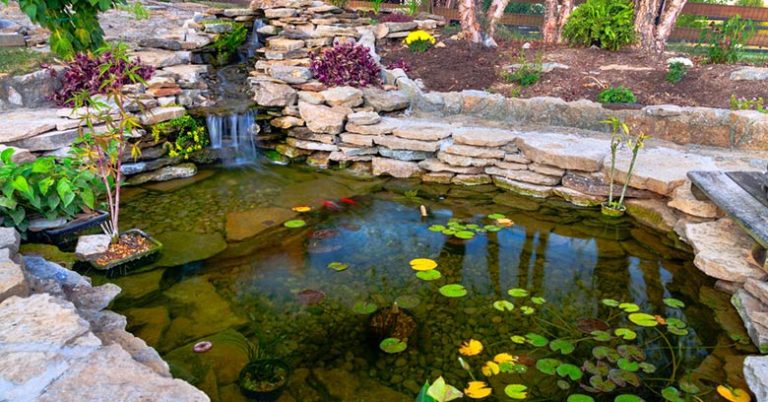
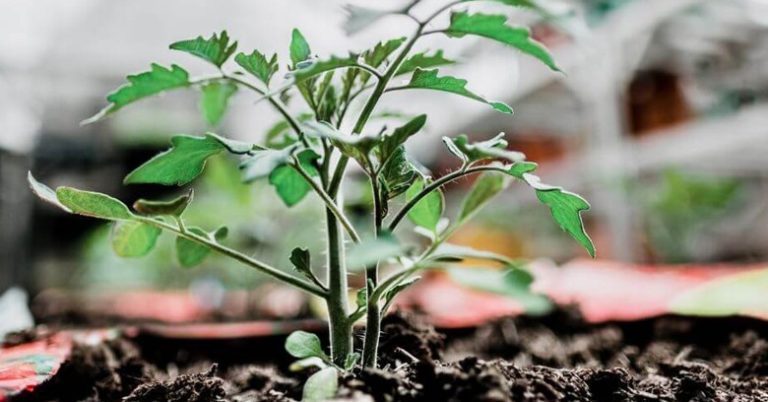
![[Answered] Can You Bury Cucumber Stems?](https://gardensuggest.com/wp-content/uploads/2023/07/can-you-bury-cucumber-stems-768x576.jpg)
